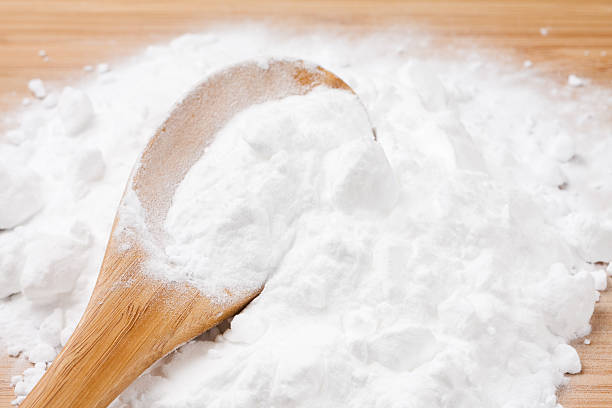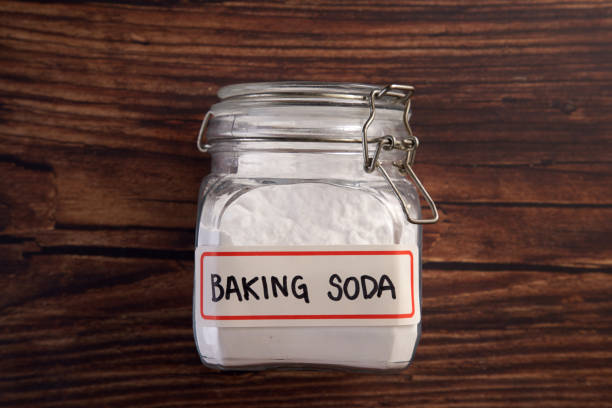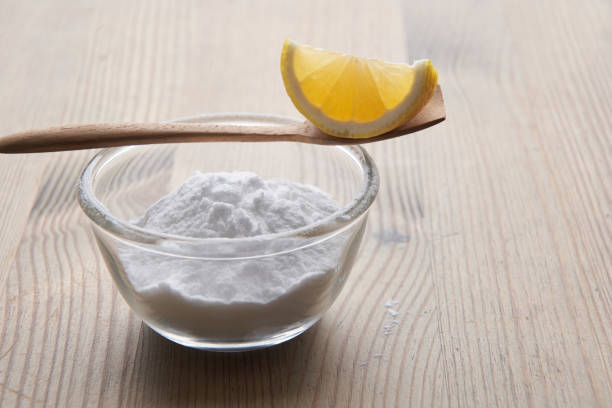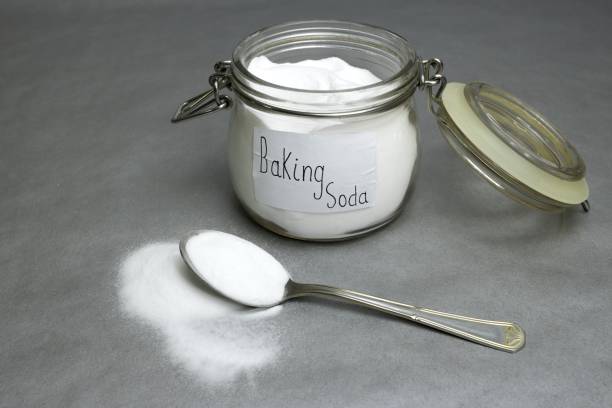What Is the Difference Between Baking Soda and Baking Powder
In the domain of baking, accuracy is vital. Each fixing contributes extraordinarily to the science of a recipe, guaranteeing that the result rises, has earthy colors, and tastes perfect. Two normal storeroom staples frequently referenced in baking recipes are baking soda and baking powder. While they could appear to be compatible,

understanding the distinction between baking soda and baking powder is essential for making progress in baking.What is the difference between baking soda and baking powder? To get a handle on the distinction between baking pop and baking powder, it’s fundamental to dig into their systems and how they connect with different fixings in baking.
Chemical Cosmetics:
First and foremost, we should investigate baking soda, logically known as sodium bicarbonate. Baking soft drink is an unadulterated synthetic compound composed exclusively of sodium bicarbonate. Then again, baking powder is a combination of baking soda, at least one corrosive salt, and frequently, starch to ingest dampness and prevent bunching.
Also Read:
- What is the Difference Between Heat and Temperature?
- What’s the Difference Between Down Syndrome and Autism?
- What is the Difference Between Plant Cells and Animal Cells?
- Explaining the Difference Between Self Pollination and Cross Pollination?
- What Is the Difference Between an iPad and a Tablet?
Activation:
Here lies a central contrast: What is the difference between baking soda and baking powder with regard to enactment? Baking a soft drink requires an acidic fixing, like vinegar, lemon juice, or buttermilk, to set off its raising activity. When joined with a corrosive, baking soft drinks discharge carbon dioxide gas, making the mixture or hitter rise. Conversely, baking powder contains its acidic part, as a rule, cream of tartar or phosphate, permitting it to enact essentially when joined with fluid.
Single-acting versus twofold acting:
This carries us to the idea of single-acting and two-acting learners. Baking soft drinks is a solitary act, meaning it discharges carbon dioxide gas quickly upon contact with a corrosive. Then again, baking powder can be either single-acting or two-fold-acting.
Single-acting baking powder responds completely when blended in with a fluid while two-fold-acting baking powder delivers a little gas after blending and the rest of the baking, giving a second ascent in the stove.
Taste and Surface:
One more critical part of the distinction between baking pop and baking powder is their effect on the taste and surface of prepared merchandise. Baking pop, when not appropriately offset with acidic fixings, can leave a lathery or unpleasant desire for prepared products.
Running against the norm, baking powder, particularly two-fold-acting assortments, will in general create a more nonpartisan flavor profile. Furthermore, baking soft drinks can bring about a crisper surface because of their nearby raising activity, though baking powder might yield a gentler, more delicate scrap.

Versatility:
Understanding What Is the Difference Between Baking Soda and Baking Powder? Likewise, their flexibility in recipes. Baking soft drinks is most appropriate for recipes that, as of now, contain acidic fixings, for example, buttermilk hotcakes or chocolate cake with cocoa powder.
Interestingly, baking powder is a more flexible choice, reasonable for recipes where acidic fixings are restricted or missing, like plain bread rolls or sugar treats.
Shelf Life:
The period of usability is one more variable to consider. Baking soft drinks will, in general, have a longer period of usability since it is a steady compound. Be that as it may, it can lose its intensity over the long haul, so it’s prudent to check the termination date or play out a basic test by adding a touch of baking soda to vinegar to check whether it bubbles.
Baking powder, particularly the twofold-acting assortment, may have a more limited timeframe of realistic usability because of its various parts. Putting both baking soda and baking powder in impermeable compartments in a cool, dry spot to keep up with their effectiveness is urgent.
Final Words about What Is the Difference Between Baking Soda and Baking Powder
All in all, What is the Difference Between Baking Soda and Baking Powder? refers to their synthetic creations, enactment components, and consequences for prepared merchandise. Baking soft drinks depends on outside acids for enactment while baking powder contains its own corrosive and can be single- or two-fold acting.
Understanding these distinctions engages bread cooks to pursue informed choices in recipe determination and fixing replacements, eventually prompting baking achievement. In this way, the following time you set out on a baking experience, recall the basic distinction between baking pop and baking powder—it could have a significant effect on your culinary show-stopper.

FAQs about What Is the Difference Between Baking Soda and Baking Powder
Can I substitute baking soft drink for baking powder, or the other way around?
While the two of them act as raising specialists, their initiation strategies contrast. Subbing one for the other without changing the recipe’s acidic fixings can prompt unfortunate outcomes.
Notwithstanding, in specific conditions, you can make changes by adding acidic fixings or utilizing twofold-acting baking powder.
How do I have any idea about which one to use in a recipe?
The decision between baking pop and baking powder relies upon the recipe’s sharpness and the ideal surface of the eventual outcome. Recipes with acidic fixings like buttermilk or lemon squeeze normally require baking powder, while those without may call for baking powder.
Why does baking a soft drink once in a while leave a harsh desire for heated merchandise?
Baking soft drinks can give a severe or sudsy taste while perhaps not appropriately offset with acidic fixings in the recipe. It’s significant to follow recipes precisely to achieve the ideal flavor profile.
How might I at any point test if my baking pop or if it is as yet dynamic to heat powder?
For baking pop, you can play out a straightforward test with just a little vinegar. Assuming that it bubbles enthusiastically, it’s still dynamic. For baking powder, blend a modest quantity with water. If it bubbles, it’s still dynamic.
Do baking soda and baking powder have lapse dates?
While both have somewhat lengthy timeframes of realistic usability, they can lose intensity over the long haul. It’s fitting to check the termination date on the bundling or play out the previously mentioned tests to guarantee they are still dynamic.
